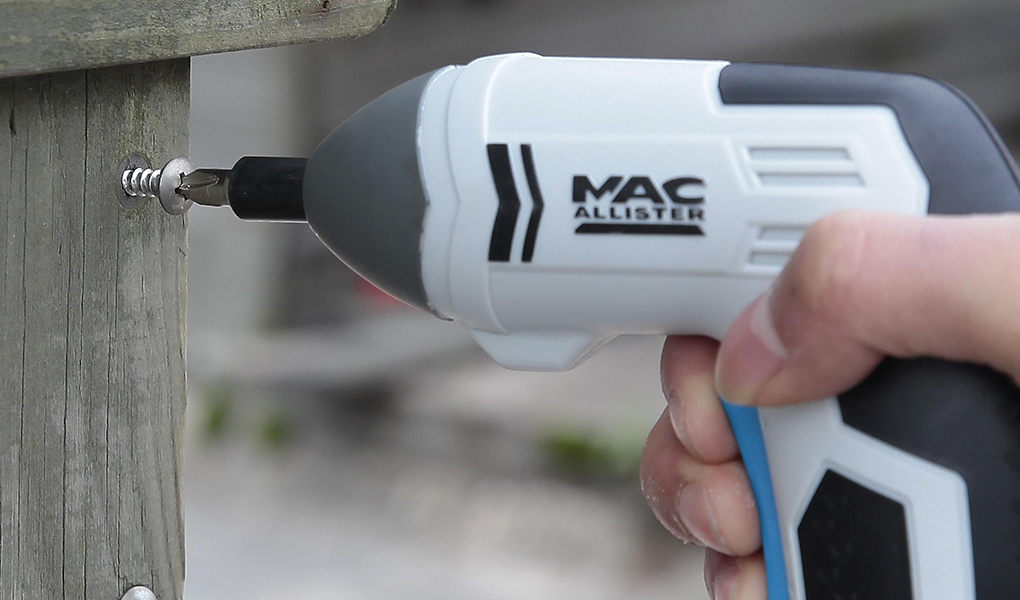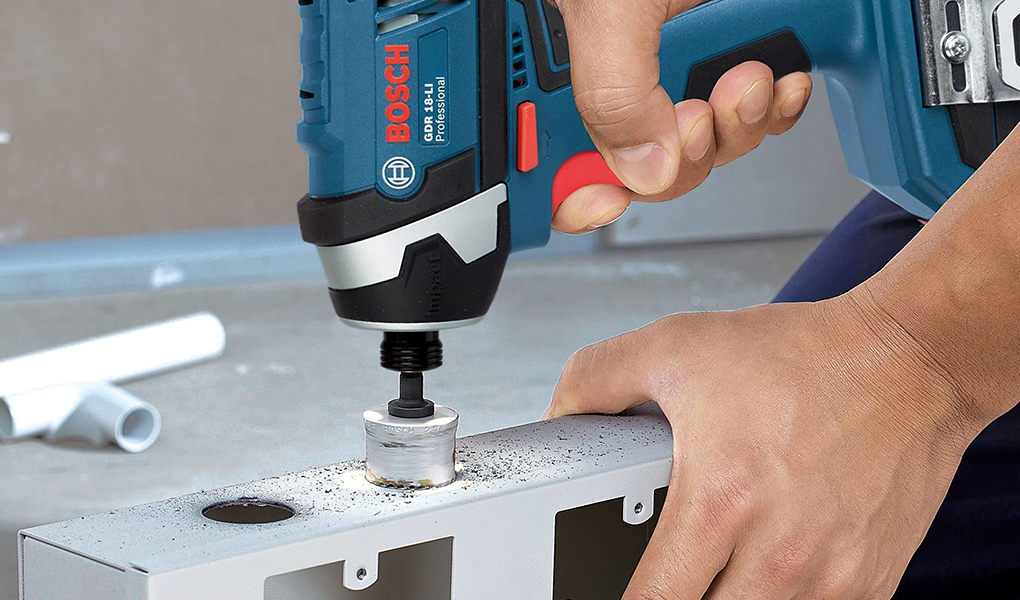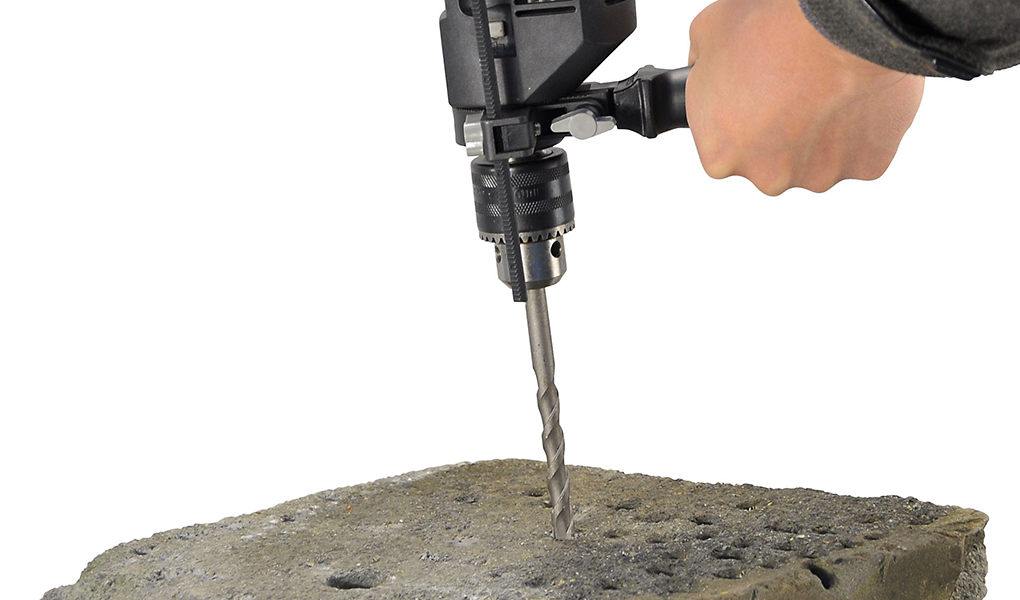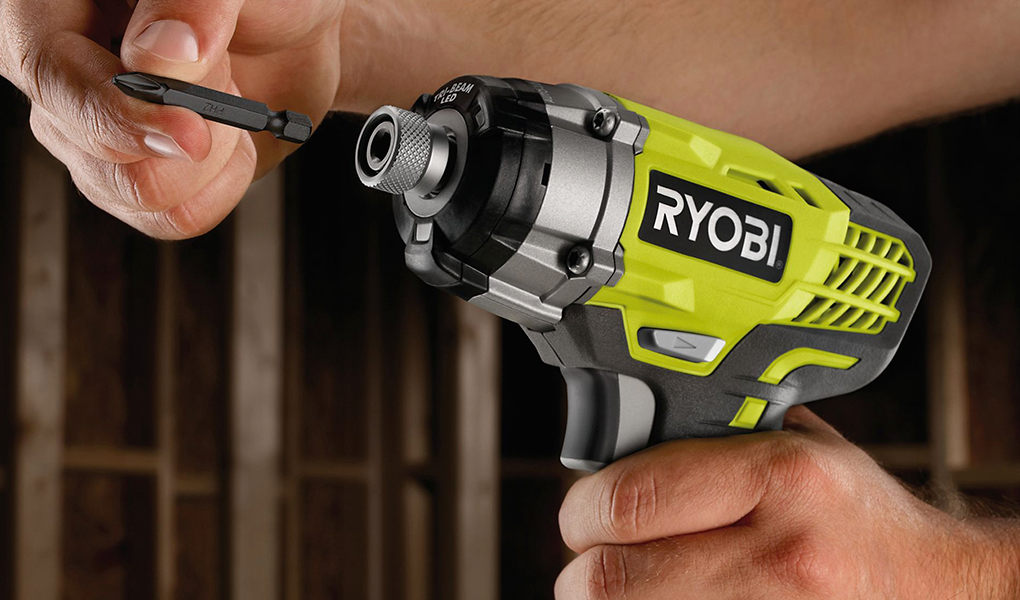Electric screwdriver & impact driver buying guide
An electric screwdriver or impact driver is a key piece of kit for your toolbox, allowing you to screw and unscrew as required with complete ease. They’re ideal for DIY projects, such as assembling flat pack furniture, laying a deck and putting up a fence or shed. As well as smaller tasks, such as hanging hooks and tightening fixtures and fittings.
Let us take you through your options and help you pick the right electric screwdriver for you.
Before you begin
It’s important to think about how you plan to use your power screwdriver before buying. Here are some of our key considerations.
Electric screwdrivers help with all number of household tasks, but to get the most out of it and use it safely and correctly, ask yourself what material the screw will be driven into. For example, will it be timber, plasterboard or MDF? Driving into different materials requires different amounts of power – so think about this before you buy.
How long will you be using the screwdriver for?
Consider the duration of the particular tasks you’ll be using your screwdriver for. If you’re going to be using it for long periods of time, look for ones that are as comfortable and lightweight as possible.
There are two different options when it comes to buying a power tool with screwdriving functionality. Either opt for one with screwdriving as its primary function – such as an electric screwdriver or an impact driver – or pick up a tool that offers screwdriving amongst many other features, such as a combi drill or drill driver. For more on combi drills and drill drivers, head over to the Buyer’s guide to drills.
Electric screwdrivers
Consider a small electric screwdriver for light jobs around your home, such as hanging pictures or putting furniture together, and on such materials as soft wood and plasterboard.
They are compact, portable and easy to store.

Impact drivers
If tackling a tough job, like a building, carpentry or decking project, you’ll need an impact driver. This is a heavy-duty screwdriver designed for heavier, denser materials and more prolonged use.
Impact drivers apply an additional (percussive) force, similar to that of a hammer drill, which helps to drive screws faster and into denser materials.

When choosing your electric screwdriver, the tool’s power source can be an important factor. Let’s go through the two options – cordless and corded.
Cordless electric screwdrivers
Power measured in volts (V)
A cordless screwdriver allows you to move freely and reach difficult areas without you having to stay near a power source - useful if working in tight spaces and on fiddly jobs.
Powered by a battery, their power is measured by volts (V). A higher voltage gives the cordless screwdriver more torque strength to overcome resistance. So if you need to drive into hard material, opt for a high voltage as it will be more powerful.
Battery capacity
Power measured in amp hours (Ah)
The bigger the battery capacity, the more time you’ll have to do DIY. And as tougher jobs use more battery power, it’s also worth thinking about the type of job, as well as how long it will take to complete.
Look for Lithium-ion batteries – these are powerful, yet lightweight and are an environmentally sound choice. Even if you leave the tool for a prolonged period between uses, it will have maintained its charge with no deterioration.
Many manufacturers ensure that their whole range of cordless power tools use the same battery. As they have the same voltage, you can simply buy one battery and charger and just switch it between all the tools you have – making buying DIY tools for your home more cost effective.
Depending on the size and power of the tool and battery, each cordless screwdriver will have a different charge time. And quick charging can be useful when working on big projects such as laying decking or putting up a fence.
Corded electric screwdrivers
Power measured in watts (W)
Corded electric screwdrivers plug directly into the mains electrics ensuring that you have power for the entire task at hand. This constant supply of power means there’s no need to change, or wait to recharge, batteries, making corded screwdrivers well suited to heavy-duty tasks like construction projects.
The screwdriver’s wattage measures its power. The higher the wattage, the more power is available. If only using for light work, such as screwdriving into plasterboard, consider a lower wattage. Or, if using on metals or wood, opt for a higher wattage.
When using a corded screwdriver, be aware of the trailing lead behind you as this can be a trip hazard, or may get tangled around furniture.

Electric screwdrivers and impact drivers offer a wide range of technical specifications and helpful features to make DIY jobs easier and quicker. These can include the following:
Torque
Measured in Newton metre (Nm)
The tool’s power is measured in torque, which defines how much rotational (or twisting) force is applied. Your electric screwdriver or impact driver will either have an Nm number or settings that represent a Nm number.
No load speed
Measured in revolutions per minute (RPM)
This measures the speed at which the tool’s bit rotates. Look for models with variable speed settings to help with a wide variety of jobs.
No load speed works with torque to define the performance or ability of the tool. The greater the torque and faster the speed, the easier it will be to drive a screw into a harder material, such as a hardwood.
When driving into any surface, start with a low speed and low torque setting and then increase both. This helps to protect delicate surfaces and you may find that only a low speed or torque may be needed to complete the task.
Chuck size
The larger the chuck size, the larger diameter bit you can use. The size stated is the maximum – so if your screwdriver has a chuck size of 5millimetres (mm), it will only accept bits up to, and including, that size.
Spindle lock
This clever safety feature locks the chuck and bit when you take your finger off the trigger, allowing you to prevent the mechanism from moving.
Handle design
As with any power tool, it’s important to find one that’s comfortable for you to work with. Look for options with comfort features such as ergonomic design and soft-grip handles.
Micro USB chargers
Make charging your screwdriver even more convenient with a micro USB charging system – available on some small electric screwdrivers.
LED lighting
Illuminate your working area by choosing a power screwdriver with built-in LED light – great for building cabinetry and assembling small pieces of furniture.

With your electric screwdriver chosen, stock up on those last few essentials to get the most out of your new tool.
Screwdriver bits
Different jobs around the home require different screwdriver bits. All of our screwdrivers come with a basic selection of bits, or pick up an accessory set so that you’ll be covered whatever you work on.
Batteries & chargers
If you’ve chosen a cordless model, having a spare battery or charger will ensure that you won’t need to stop the task at hand should your tool run out of charge.
Extension leads
Make sure that you can easily complete your DIY task with your corded screwdriver or impact driver by getting an extension lead or cable reel – this will let you use your power tool in every nook and cranny of your home.